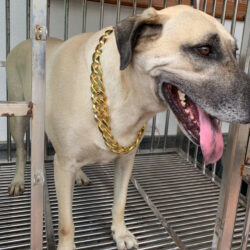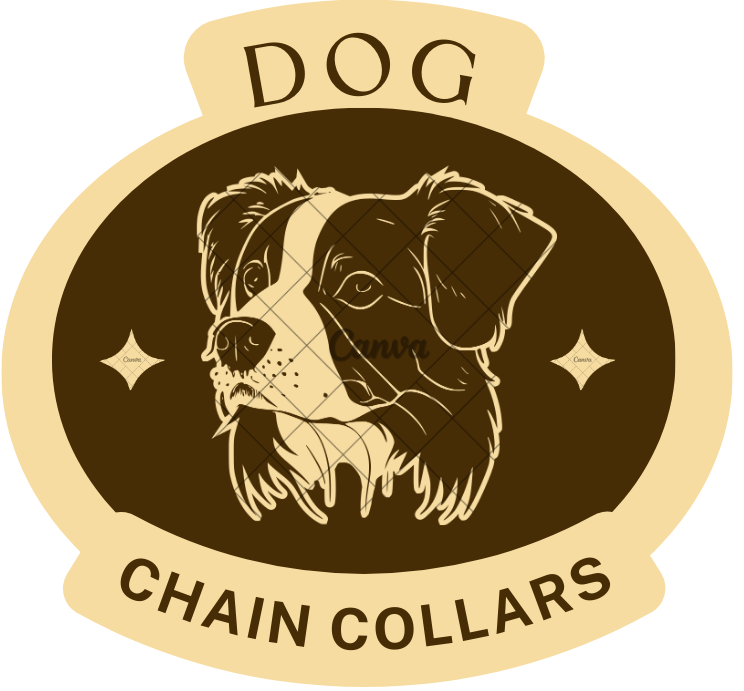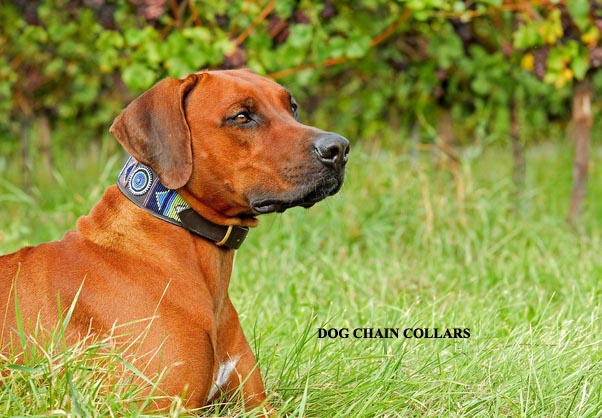Introduction
Choosing the right collar for your dog is an important decision. For big dogs, this choice is even more crucial, as they require sturdy, reliable collars that can handle their size and strength. Chain collars, often referred to as training collars, can be a great option for big dogs due to their durability and training benefits. In this article, we’ll explore everything you need to know about chain collars for big dogs, as well as options for smaller breeds and various styles available.
Dog Chain Collars: What You Need to Know
Chain collars, also known as choke collars or slip collars, are designed to tighten around a dog’s neck when pulled. This action mimics the natural correction a mother dog would give to her puppies. While these collars are often associated with training, it’s important to use them correctly and with proper guidance.
One of the key benefits of chain collars is their effectiveness in training big dogs. The quick correction they provide can help deter unwanted behaviors, such as pulling on the leash. However, it’s essential to use them responsibly and not to overcorrect, as this can lead to discomfort or injury.
Big Dog Chain Collars

When choosing a chain collar for a big dog, there are several factors to consider. Look for collars made from high-quality materials, such as stainless steel, that can withstand the strength of a large breed. It’s also important to ensure the collar fits correctly, as a collar that is too loose or too tight can be ineffective or harmful.
Some top picks for chain collars suited for large breeds include the Herm Sprenger Ultra-Plus Prong Collar and the PetSafe Gentle Leader Headcollar. These collars are designed specifically for big dogs and offer both durability and comfort.
Small Dog Chain Collars

While chain collars are often associated with big dogs, there are options available for smaller breeds as well. For smaller dogs, look for chain collars with smaller links that are gentler on their necks. Collars like the Pet Safe Petite Martingale Collar or the Blueberry Pet Classic Martingale Collar are great choices for small breeds.
When using a chain collar on a smaller dog, it’s important to be extra cautious. Ensure the collar fits properly and avoid using excessive force when correcting behavior.
Styles of Dog Chain Collars
There are several styles of chain collars available, each with its own pros and cons. The most common styles include slip chain collars, martingale collars, and prong collars.
- Slip Chain Collars: These collars are the most basic form of chain collars and are designed to tighten around the dog’s neck when pulled. They are simple to use but can be harsh if not used correctly.
- Martingale Collars: Martingale collars are designed to prevent dogs from slipping out of their collars. They tighten slightly when pulled, providing a gentle correction.
- Prong Collars: Prong collars have metal prongs that pinch the dog’s neck when tightened. While effective for training, they can be controversial and should be used with caution.
Choosing the Right Size and Fit
It’s crucial to select the correct size chain collar for your dog. A collar that is too tight can cause discomfort, while one that is too loose may not provide effective correction. Measure your dog’s neck before purchasing a chain collar and ensure you can fit two fingers between the collar and your dog’s neck for a proper fit.
Training Tips for Using Chain Collars
When using a chain collar for training, it’s important to be consistent and patient. Use positive reinforcement techniques alongside the collar to encourage good behavior. Avoid jerking or yanking the leash, as this can lead to injury. Instead, use gentle, firm corrections to redirect your dog’s attention.
Safety Considerations
While chain collars can be effective training tools, they should be used with caution. Never leave a chain collar on your dog unsupervised, as it can pose a choking hazard. Regularly check the fit of the collar to ensure it is not too tight. If you have any concerns about using a chain collar, consult with a professional dog trainer for guidance.
Alternatives to Chain Collars
If you’re uncomfortable using a chain collar on your dog, there are several alternatives available. Flat collars and harnesses can be effective options for controlling your dog without the use of a chain collar. Consider your dog’s size, breed, and behavior when choosing an alternative collar.
Conclusion
In conclusion, chain collars can be a practical and effective option for training big dogs. When choosing a chain collar, consider your dog’s size, breed, and training needs. Always use chain collars responsibly and seek guidance from a professional trainer if needed. With the right collar and training, you can ensure your mighty canine is both stylish and well-behaved on walks.
For more in-depth guidance on using dog chain collars and enhancing your training approach, click here.

